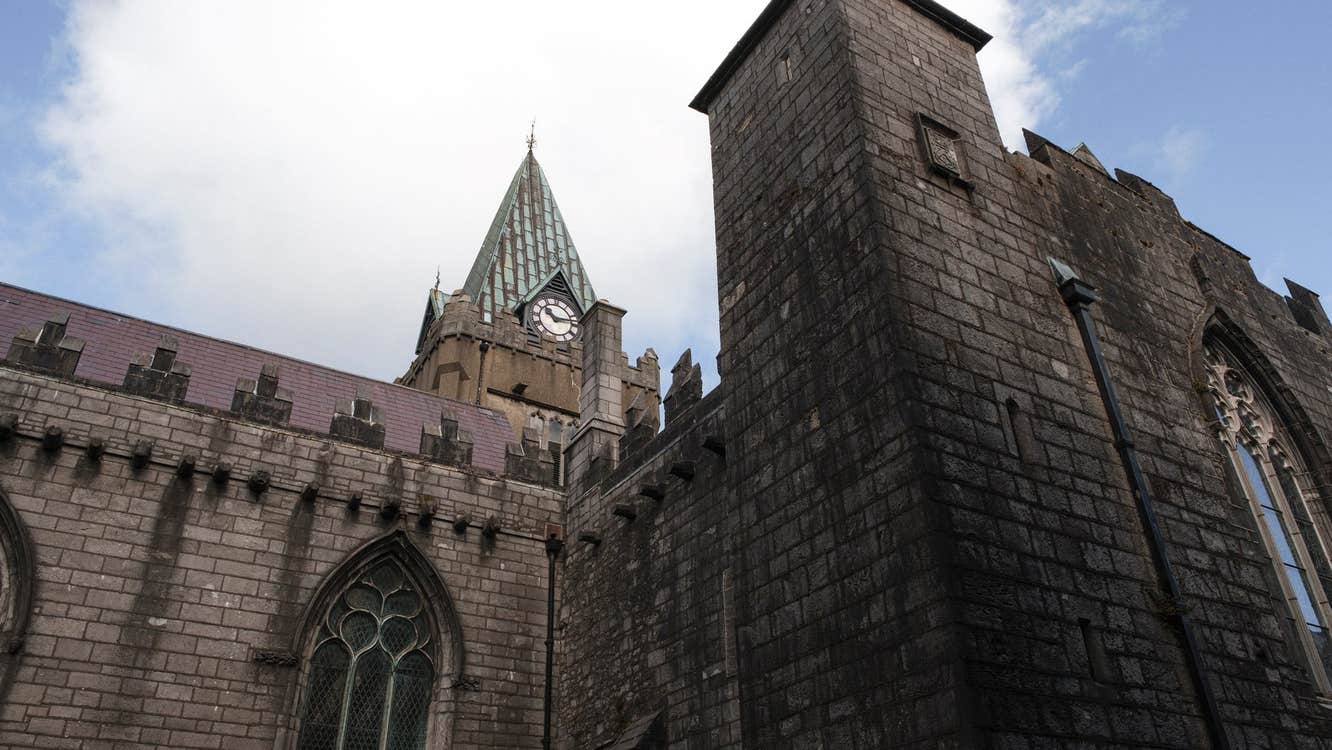Saint Nicholas’ Church invite you to come on a tour. An old and large church, it sits right in the middle of the medieval centre of Galway City. It is dedicated to Saint Nicholas of Myra, patron saint of children- Santa Claus and of mariners. There is some disagreement about when it was built, but it was certainly finished by 1320.
When the church was built Galway was a tiny, very new town, a sort of frontier settlement in the wild west of Ireland. The inhabitants however, had big ambitions. They built a huge church bigger than many Irish cathedrals. During the 16th century, when the 14 Tribes were at the zenith of their power, the church was extended by two of the most powerful families the Frenches and the Lynchs, each of whom built a new side aisle to the nave, resulting in an almost square interior and the unusual three roofed profile.
There are many monuments and memorials in the church. Look out for Galway’s Jane Eyre, a virtuous and pious parishioner, who in 1760 bequeathed £300 to the corporation to give bread to thirty six "poor objects" forever. What happened to the £300 is unknown. Or spare a tear for little James Kearney who played with his spinning top in the street and was run over by a horse and cart. The baptismal font is over 400 years old and the dog carved into its side still keeps an eye on Galway’s newest citizens as they are baptised. The oldest inhabitant of the church is Adam Bures, whose grave marker dates from the 13th century and is known as the Crusader. High above the north aisle is perched the Lepers’ Gallery which gives access to the Belfry. The name is inaccurate Galway Corporation firmly banned any sufferers from the disease from entering the city.
On the outside of the church, one can see two mermaids, a dragon, an ape and a lion. High at the roof edge is a series of stone gargoyles, some of them richly carved into horse's heads, a manticora, human heads and another lion.
Amongst the visitors to Saint Nicholas’ over the centuries the most famous is probably Christopher Columbus, who likely prayed here during a visit to Galway in 1477. Less welcome was the Cromwellian troops who used the church as a stable for their horses after the siege of Galway in 1652. They are blamed for the headless and handless state of most of the carved figures inside the church.
There are leaflets available in many languages which allow you to go on a self guided tour around Saint Nicholas' Collegiate Church, Galway.
